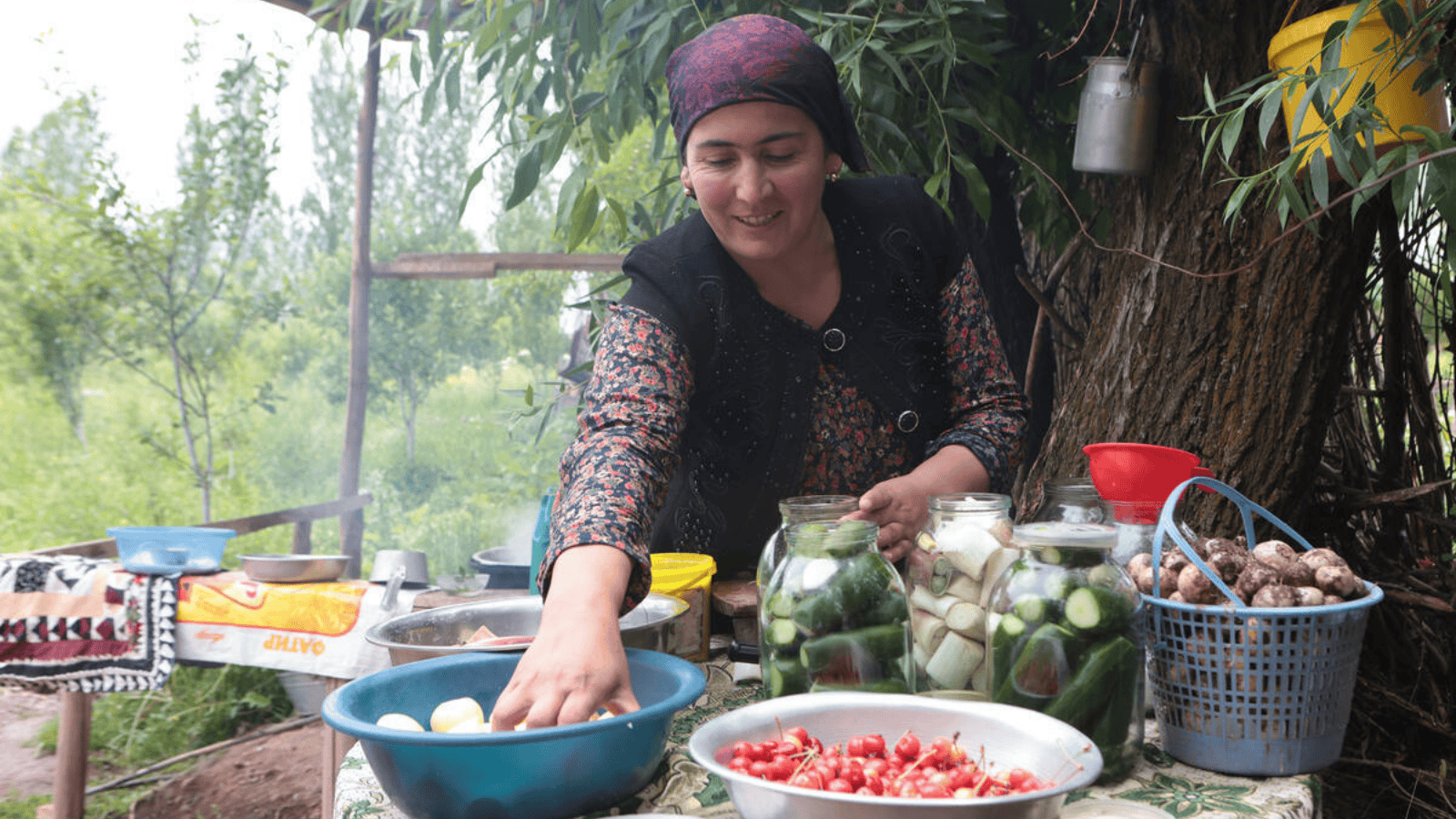The power of nutrition in bridging science and policy for sustainable food systems transformation
At the 23rd International Congress of Nutrition in Paris, the Hub’s Scientific Advisory Committee spotlighted nutrition as the bridge between science, policy, and sustainable food systems transformation.

©FAO / Didor Sadulloev
Nutrition is emerging as a key connector between science, policy, and sustainable food systems.
Building on the momentum of discussions at the 2nd UN Food Systems Summit Stocktake (UNFSS+4) in July, the Hub's Scientific Advisory Committee (SAC) convened a scientific symposium at the 23rd International Congress of Nutrition (ICN) in Paris organized by the International Union of Nutritional Sciences (IUNS). Dr Shakuntala Thilsted, SAC Chair and Director for Nutrition, Health and Food Security Impact Area Platform at CGIAR, opened the session by outlining its objective: to spotlight nutrition as a critical driver of science-policy convergence.
Nutrition as both an outcome and a driver of transformation
Professor Barbara Burlingame of Massey University, Co-Chair of the Hub’s SAC and Council member of the International Union of Nutritional Sciences (IUNS), opened the discussion by emphasizing that in addition to nutrition as an outcome of policy, it is also a major driver for food systems transformation. She highlighted how current food systems are producing multiple burdens of malnutrition and environmental degradation.
Drawing on decades of global summits and commitments, she noted that despite growing attention, most initiatives fall short due to narrow framings, sectoral silos, and weak accountability. She called for re-centering nutrition as a public good linked to real food, equity, and climate resilience, and emphasized that nutrition science can bridge agriculture, environment, and health.
Insights from Small Island Developing States
Dr Vincent Lal, from the University of South Pacific, grounded the discussion by sharing local solutions in the context of Small Island Developing States (SIDS). He shared that SIDS, despite their small population, are custodians of nearly 30% of the world's ocean. However, they remain disproportionately vulnerable to climate change impacts, including sea-level rise, saltwater intrusion, erosion of arable land, and the loss of edible biodiverse foods. To tackle these challenges, Dr Lal highlighted the importance of food composition data in shaping science-policy integration. This includes the use of national food-based dietary guidelines and evidence-based policies that promote local and traditional foods. His concluding message stressed that revitalizing traditional knowledge and supporting local, resilient food systems are essential for human health and social development of Pacific communities.
A rights-based approach to food and nutrition
Professor Nitya Rao from the University of East Anglia and member of the Hub’s SAC framed her intervention around the importance of taking a rights-based approach to tackle the challenges related to ensuring food security and nutrition. She emphasized that systemic injustices including labor inequities, environmental degradation, and persistent gender and rural inequalities are embedded in current food systems. With 2.3 billion people unable to afford a healthy diet in 2025, she highlighted that human rights must serve as the ethical foundation for transformation.
Drawing on national examples, Professor Rao shared how embedding the Right to Food, Indigenous Peoples’ food sovereignty, and smallholder rights into national pathways can bring inclusive change. Examples cited also included Brazil’s policies on land reform, public procurement, and low-carbon agriculture, as well as Bolivia and Ecuador’s recognition of the Rights of Nature.
Bridging science, policy, and practice
The symposium concluded with an insightful Q&A discussion with the audience and, overall, explored nutrition through multiple framings essential to food systems transformation. Most importantly, it presented nutrition as more than just an outcome to measure. Nutrition has a role to play in channeling science-policy communication and must be considered through regional contexts and rights-based perspectives that can reduce existing power disparities.
